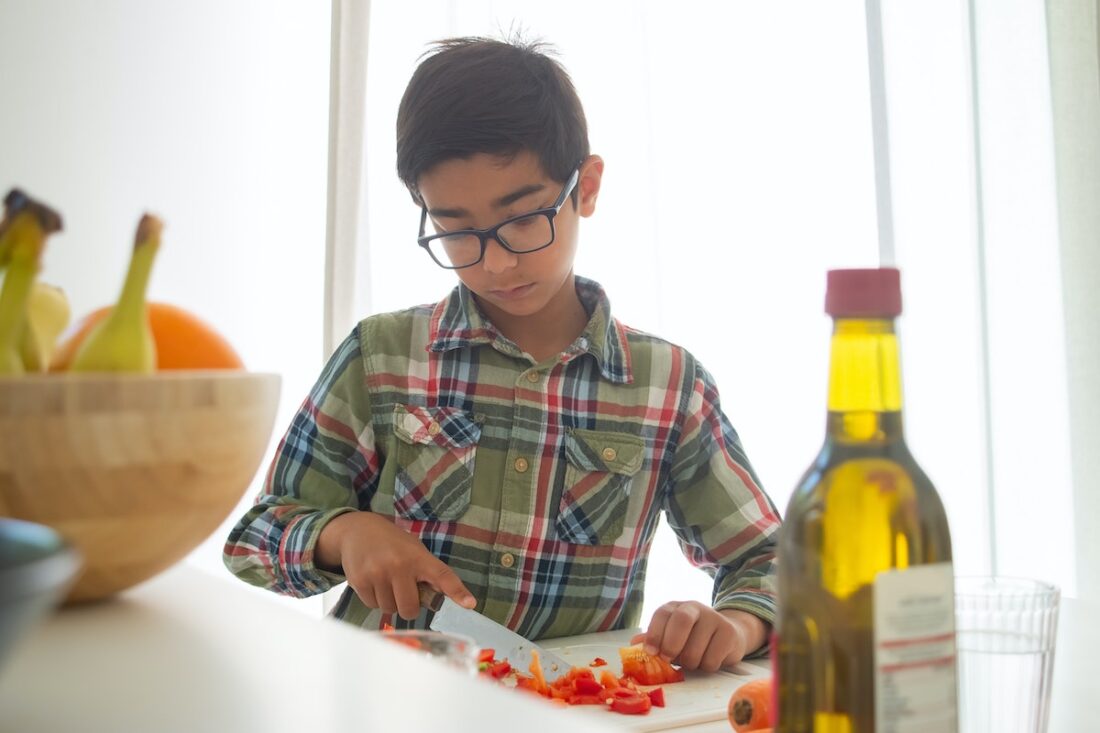
Children across the world have spent the past year on and off under lockdown conditions. Mostly indoors and attending virtual school, children have experienced Social Isolation, Lesser Physical Activity, Compromised Nutrition, Overuse of Screen Exposure, and have experienced an impact on their Mental Health.
As Nutrition Experts, during our conversations with various families, we have come across some broad areas where children have been impacted as a result of the pandemic situation:
- Reduced Physical Activity & Impact on Digestive Health
Children have had lesser physical activity than pre-covid times when they were attending school and spent more time outdoors. This has resulted in lesser energy expenditure, resultant weight gain, and an impact on digestive health (with symptoms like sluggish bowel movement, acidity, constipation). - Staying Indoors & Deficiency of Vitamin D
Spending most of their time indoors during the pandemic meant lesser sun exposure, and as a result, many have a deficiency of Vitamin D. Vitamin D is a vital nutrient, especially during the pandemic, as it directly impacts immunity. - Social Isolation & Potential Lifestyle Disorders
Lockdown conditions have caused prolonged social isolation for children (lack of onsite schooling, playground interactions, etc.). This isolation and the resultant boredom have impacted children’s mental health – but apart from that, it has also made food a replacement for entertainment.
Interesting-to-eat foods (usually High Sugar/ High Salt/ High Carb/ High Fat/ Packaged Foods) became a replacement for the joy that usually comes from social interaction. To add to it, TV Binge-eating or extensive baking activities usually end in consuming high sugar or unhealthy foods. This trend can lead to the onset of obesity and other lifestyle disorders like early hypertension, pre-diabetes, hormonal imbalances, etc., in children. - Stress of Lockdown & Compromised Nutrition
The stress of being in lockdown conditions (WFH for parents, lack of domestic help, homeschooling) has resulted in increased consumption of convenience foods. Convenience foods like packaged foods are high in disguised salt, sugar, fat, and chemical preservatives. This has led to compromised nutrition and resultant nutritional deficiencies like protein insufficiency & vitamin deficiencies. - Changes in Routine & Altered Sleep-Wake Cycles
Lockdown conditions have altered daily routines for many children (virtual schooling, delayed bedtime, delayed wake-up times), causing odd sleep-wake cycles. An altered sleep-wake cycle causes increased cortisol (the stress hormone), which impacts the body’s overall functioning, including digestive health, energy levels, alertness, and even mood!

While we cannot control the pandemic and the lockdown, we can take certain steps to manage its impact on children.
Here are some pointers to managing three impact areas: Compromised Nutrition, Reduced Physical Activity & treating Food as Entertainment.
- Compromised Nutrition
Please plan ahead for your children’s meals such that you can factor in all nutrients they require and incorporate those through the day’s meals. Planning also enables you to find healthier substitutes that will lead to better nutrition. For example, a more nutritious TV snack like roasted fox-nuts is better than chips. - Reduced Physical Activity
Find ways to engage children in structured physical activities & exercise every single day. This will ensure energy expenditure, lead to good digestive health, and release pent-up emotions. Parents can create structured physical activities such as running, cycling within the building premises, skipping, spot jogging and dancing. - Treating Food as Entertainment
Observe eating patterns and recognise when children are craving food because of boredom v/s when children are eating because of actual hunger. Once you identify the pattern (boredom-based craving), replace it by engaging in activities that will address their boredom (like arts & craft, music or indoor games) so that food is not used as entertainment. Another aspect to watch out for is baking & cooking. These, though fun to do together as a family, are often used as an entertainment activity, and subsequent consumption of these baked goods adds to unhealthy eating. Instead, get them to cook healthier options, like sandwiches, fruit popsicles or smoothies.

The impact of the pandemic on children is beyond the actual viral infection. The effect is not just short term but may have long-term physical and mental repercussions too. Now is an excellent time to pause and reflect on how we can manage this for our children and prepare them for the pandemic and a healthier future.
Here are a few healthy recipe ideas from the Nutrition Experts at Curo Wellness – https://curo.co/?s=kids+recipes
Read more by the Curo Wellness
Share the article
Picture Credit : pedro_wroclaw, Pixabay
Kampus Production from Pexels
lindsrw, Pixabay

